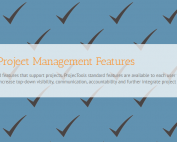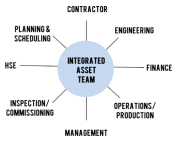5 Skills that get Document Controllers Hired
For engineering-centric companies, document control is massively important. Poor execution can lead to delays, confusion, frustration or even worse angry clients or building something from the wrong revision. This is why you need to hire the right team that can flawlessly handle document management in this online, big data era.
Obviously, there is more to finding the right document controllers than these 5 hard skills, but understanding these skills allows interviewers (and candidates) to zero in on the skills that make all the difference.
5 Skills That Make Excellent Document Management Hires Transcript
Thank you for joining us to talk about the five essential skills that make a great document control hire. This discussion is aimed at folks hiring document controllers and should be useful for document controllers as well. I want to hit on the 5 key skills that interviewers need to understand and be able to have a conversation about to really determine if candidates are going to be a bust, simply good, or a freaking superstar. For document controllers this is a good look for you at the hard skills interviewers should be focusing on. By joining us today document control candidates will be able to articulate to your future employers or your current employers, whatever the case may be, the skills that you do have and the vision that you have, and what you bring to the table. You can frame the conversation and articulate your value in a way that’s going to get you hired, promoted or even kept on board if your industry tanks.
First it’s important to know what’s at stake with a document control hire, especially for a small company with only one to two document controllers but still relevant for even huge companies. The first step in this is acknowledging that bad document management hires hurt pretty bad. Let’s take a deeper look into this here. With a bad hire you risk perpetual confusion that effects your commercial teams, your engineering teams, your partners, your subs and most importantly your clients and your executives. There’s numbering confusion for your different teams they’re not going to know how to access the documents that they need. They could end up accessing the wrong revision and confusing that with the latest revision. They could have trouble accessing and locating the documents themselves. The same thing with reporting on progress and status. If there’s confusion about any of these numbering revision progress or where the documents are located, the reporting on the progress and status is going to come out of a place of confusion, and the reports are going to be wrong, incorrect, or late.
The second thing that you’ve got to acknowledge is that if you hire bad document controllers it can be a complete waste of money. If your document controllers are bad or difficult to work with folks just plain old won’t work with them. They’ll continue to do their own thing and really just hope for the best. In this case, which you don’t want to do, you’ve hired a document controller for absolutely nothing. It’s a wasted expenditure that creates more hurdles for your productive team members that it brings down.
The third way that bad document management hires hurt is that clients notice. Document control is a big interface point between your company and your clients, or your company and your important partners. If that interface is lacking, cumbersome, not accommodating, or just plain old not a good experience – clients are going to notice and it’s going to reflect on poorly on your company. There is good news to this though, there are tons of great document controllers out there. It’s just on the hiring managers and interview team to know how to find them and tease the skills out of the candidates.
Let’s take a look at the five skills that the document management hiring team needs to looks for. The first one is numbering and nomenclature Skills. This can be broken down into two parts, internal numbering and client numbering. With internal numbering, if you’re numbering is inconsistent or numbering confuses your teams and leads to duplicated effort rework and spotty access for other team members. In the same vein, being too tricky or fancy with document numbering can cause confusion among your team. We work with folks who really wanted to think out of box their document numbering systems and transmittal numbering and so forth. They went with it for a while but they found that it just added a confusion and didn’t work out in the long run. Look at the industry standards, they’re standard for a reason and go with that. That’s the response that you want to hear from your candidates. You want to hear that they want everything to be consistent. They want everything to be within the norms in a format that will work for multiple projects and all the teams that are working within the project and on multiple projects. Document controllers who think like this are incredibly valuable because they realize that engineers and commercial teams are going to work on multiple projects throughout the day, month or year – so making it easy for teams to plug right into a project is key.
The second part is client numbering. You want to hear things from your candidates like they want to accommodate clients by giving the clients the option to view and search using the numbering systems that the client is familiar with. This might just be a condition of doing business with your clients. If that is the case you probably want to have a conversation in the interview about some strategies that your document controllers have for making that happen.
The second key skill to ask your document control candidates is distribution skills and their approach to the document distribution aspect of document control as well. You want to stop the file server apologists in their tracks. Just providing access to a server and a folder structure where teams can have self-service to documents, look for the latest revision, the latest rev folder, the past revisions, the mark ups, and other folders someplace else. That’s not a good way of doing things, that way has been around for about twenty years and there are better ways out there that make things less confusing and just better.
The second thing in distribution skills is online distributions. We live in a globalized world so you have suppliers on the other side of the world, you have inspectors on the other side of the world, you have engineering teams in India perhaps, and your client maybe in a whole different country so couriers and emails, the traditional way to get things around they’re super old school, they’re untraceable, and they’re unsecure. You want to hire document controllers that can see that and understand that couriers and emails and file cabinets and file servers just really aren’t the way to do things anymore. You want to tease out their ideas on how to get you guys moved past using these outdated systems and methods.
The third thing here is self-service. While you don’t want to have just a file server for people to go access documents, there should be some component of self-service so people can go an access what they need to, and find the latest revision very quickly and easily. You want to tease out some of the ideas they have for making this happen. There are a lot of good tools out there, ProjecTools offers one of them that makes self-service very, very easy to attain reality.
The third skill to look for you in your document management hire is markup and review management. I think the most important thing to assess from your candidates here is that they should be accommodating to however folks want to do it but with that accommodation also be able to work that into a process. An example is, letting your tech affirmative folks do online reviews using whatever system you choose, where tasks get distributed to reviewers and approvers and all the mark ups on the documents get logged back to the revision and so forth. This is good because the tech affirmative folks they probably want to do this online. They think printing and marking up and scanning back into a system is a wasteful pain in the neck, and I fall into that camp. You want your document managers to accommodate the paper pushers too. While accommodating the differences in preference here but still making sure that the two methodologies fit into a standardized coherent review and approval process is very much key.
Additionally, in the interview you want to ask a couple of questions about dispositions. How they can avoid things like somebody walking by them in the hallway handing them a stack of paper and the person handing the documents over just says, “Looks good to me,” and hands a stack of marked up documents to the document controller in the hallway. That’s not a good clear disposition and that’s going to require the document controller, who probably doesn’t have a lot of technical expertise in this area, to make some judgment calls. You want to figure out what your document management candidate strategy is for avoiding that and gathering back the consistent and clear dispositions so that they know what to do with the technical information that they get.
The next thing here is history. You want to ask the candidates how they’re going to implement a systematic way to collect each reviewers mark ups and log those against the correct revision and make them accessible for the life of the project, and even thereafter as long as they need to be accessible as well.
The fourth thing you want to look for in a document management hire is their ability to integrate with other teams. I have a couple of examples up there, procurement and cost control and inspections. Document controllers need to integrate with procurement because suppliers and vendors do need the latest revisions because building from the wrong revision in the case of engineering procurement construction or architecture or oil and gas or anything that costs some serious cash, like hundreds of thousands of dollars generally. You want to dig into their ideas about how they can integrate your document control processes with suppliers, and vendors and even the commercial teams that are building these requisitions so there can be seamless transfer of knowledge and basically ensure that all the parties have the latest revision all the time.
The second example here is cost control. You want to figure out how your document control team and your document control candidate plans on supporting a business group like cost control. Cost control is probably going to need some progress and status reports from your document controllers, especially if you guys are billing based on earned value. Communicating that progress and status and it can really be a pain for the cost controllers. They don’t really want to be beholding to the document control schedule. You want to dig into your candidates ideas about integrating the progress and status updates with cost control. How they can transmit that information or automate the transmission of that information in a coherent way that can support that business group.
The third example here is inspections. Very much like the suppliers and vendors. The inspectors need the right revision otherwise they could be across the Pacific Ocean in Korea sitting ideal at the suppliers plant trying to inspect a piece of equipment or something and not have the latest rev. Just some guidelines here, as you dive into this specific situation what you don’t want to hear from your document candidate is that, the document controller wants to use file transfer protocols or emailing a flash drive or mailing the physical documents. You don’t want to hear things like online distributions and nothing about emails, nothing about file servers. You want to hear online distributions that can be packaged in online tasks.
The fifth thing you want to tease out of your document control candidates is if they are a reporting genius. Somethings to think about are consistency. The first level of consistency is delivering consistently formatted reports. Really the driver behind this is how good are they going to be at developing a standardized process that could be tracked and managed and aggregated in the system with all the meta data that’s there to report on things like due dates, overdue tasks, document progress and document status for any grouping of documents and being able to group those documents for the statuses as well.
In consistency part II, this is really having everything in one place. The ability to allow other groups to go in and view your data at a limited level. For example, if your cost controllers wanted to go and pull the document progress from your database, or if their database is linked to your document database so they could pull progress easily you want to figure out how they can make those two things consistent and just explain the real bummer here if this doesn’t happen. Say your client requests your document register status from your document controller and then also a progress report from your cost control group. If they both deliver the reports and the reports don’t jive your client is going to ask you some questions that are going to be pretty hard to answer. Neither team is going to look good and the company is not going to look good and your client is going to be pretty upset. Which in turn means your executives are upset and your project managers are upset and everybody is just really angry.
The third thing to really tease out to figure out if your candidate is a reporting genius is ask him about client friendliness and how they’d make the reports that you send to clients friendly. It’s probably a condition of doing business to report in your clients format. It’s a good idea to ask your document controllers to draw on their experiences and ask them how they’re going to deliver those reports using client document number formats.
I hope this have given you a good idea of the things you can look for. Just a couple of other words of advice for folks hiring document controllers. Understand that good people need good tools to execute. ProjecTools happens to have an excellent one that handles a lot of thing that we’ve talked about today. I would also like to mention that we aren’t a recruiting agency but if you’re really looking for good document controllers there’s a lot of talented individuals right now that are out there looking for work. If you can’t find anybody fill in a form on the website and we can probably help you out and point you in the right direction. The third thing is we do have a couple of good document controllers on staff, actually a lot of them on staff and they can help you out, part-time, full time, long-term, short-term, whatever is right for you guys. Sometimes for the right clients we’ll manage their whole document control operation but that’s a much deeper conversation and if you want to talk about that fill out a form on our website and we’ll contact you.
For the document controllers that tuned in, I just want to mention wouldn’t it be great to talk about perspective employers that really wanted to focus on the skills that actually matter, and dive into the vision and the details behind how to execute document control in a way that really adds value to clients, executive, to partners, to vendors, to inspectors, to everybody involved in the process. It just would be really great to talk to people on that level and if you can talk like this like in an interview you’re going to been seen as the premier subject matter expect and they’re going to see us indispensable. They’re probably going to call people back in for second interviews and force them to talk at your level which is going to be great for you and you’re probably going to get that job.
ProjecTools Product Information
ProjecTools Client Spotlight
ProjecTools Client Spotlight "I don't see how companies can manage projects like [...]
Standard Project Management Features
ProjecTools subscriptions provide valuable standard features that support projects. ProjecTools standard features are available to each user to complement core application functions and business processes. Utilize the modules below to increase top-down visibility, communication, accountability
Security and Reliability
Users need a secure, reliable environment to access project information and perform work. All applications and client data resides in a private cloud network with data replication and failover to geographically diverse datacenter equipment. ProjecTools provides 99.5% Network Availability
Construction Project Management Services
ProjecTeams is proven for flexible on-site or remote project deployments. Each ProjecTeam specialist has deep work history with a career of improving project execution, information management processes, with tools that make projects efficient, timely, and profitable.
ProjecTools Resources
Spreadsheets and Email as Project Management Tools
Projects have too many moving parts and too many players to be trusting critical data to spreadsheets and emails. You need a spreadsheet reduction strategy.
Project Management Assessment
Project Management Assessment Assess your project management practices against the best project execution teams in the Capital Construction, [...]
Document Management Software ROI
Document management is massively important for engineering and construction projects. Take the approach and use the tools that add the most value.
Aligning Document Control and Cost Control
Align Document Control with Cost Control and create seamless progress and earned value reports to stay on budget and improve cash flows.
ProjecTools Videos, Demos, and Webinars
Optimizing Review and Approval Processes for Engineering
Let’s talk about review and approvals, and closed-loop systems, and how to execute the review and approval processes for engineering and commercial...
The Keys to Successful Document Management
Let's talk specifically about document management software, and the key factors for clean and organized documentation, accessibility, finding a system...
Document Management Software ROI
Document management is massively important for engineering and construction projects. Take the approach and use the tools that add the most value.
Document Distribution and Access for EPC and Construction
Global projects have global teams that need to be in the loop. Cloud technology takes the pain out of giving teams on demand access to project data.





